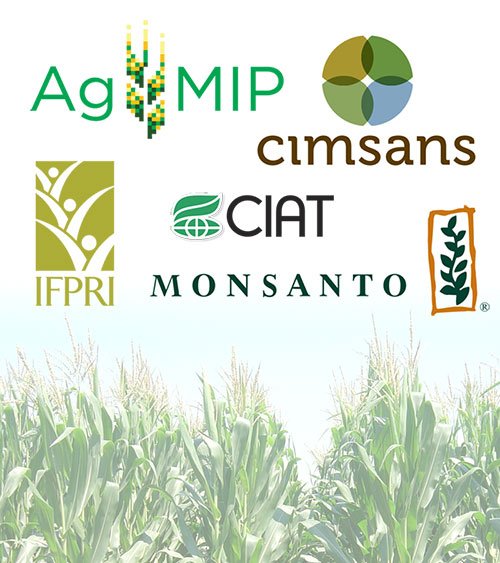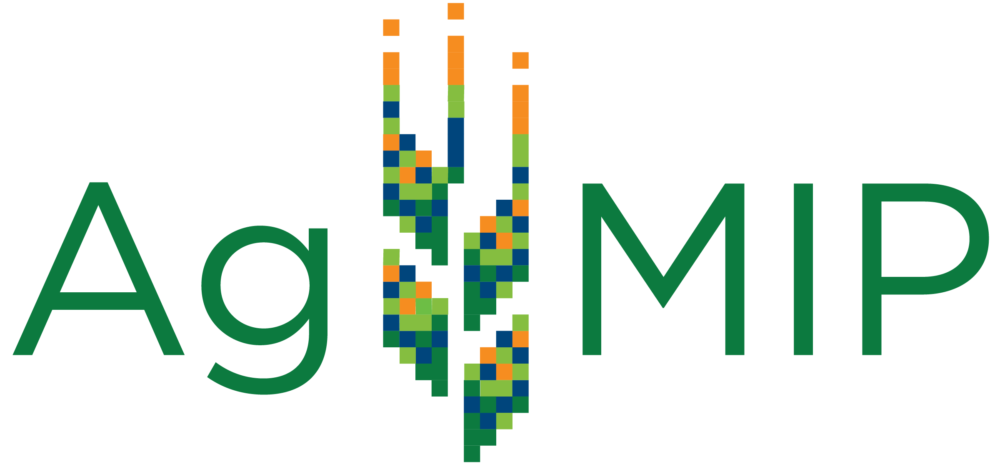AgMIP Responds to President’s Climate Data Call to Action
Nov 29, 2014
Today at the White House the Obama Administration invited leaders of technology and agricultural sectors to announce new public-private partnerships in order to advance the President’s Climate Data Initiative. AgMIP is pleased to announce its collaboration in several of these initiatives.
AgMIP and CIMSANS form partnership
In support of the White House Climate Data Initiative AgMIP and the Center for Integrated Modeling of Sustainable Agriculture and Nutrition Security (CIMSANS) have formed a new public-private partnership on open data and open source code modeling to enhance the climate resilience of food systems along with the International Food Policy Research Institute (IFPRI).
AgMIP and CIMSANS will collaborate on many aspects, such as (1) collecting relevant private- and public-sector datasets that can be made available as open data; (2) harmonizing input and output data formats across multiple modeling systems; (3) improving crop and economic models through novel open source code modeling approaches; and (4) applying these newly assembled data and modeling systems to conduct a robust assessment of sustainable nutrition security.
In order to conduct this unique assessment, AgMIP and CIMSANS will evaluate seven novel nutrition and sustainability metrics of global food systems, including all of the world’s important staple and non-staple foods, through the year 2050. This methodology will enable thorough evaluation of potential interventions intended to enhance the resilience of food systems to global change impacts.
CIMSANS and AgMIP Step Up to the Challenge

AgMIP and CIAT Team up with Monsanto
Also in support of the White House Climate Data Initiative Monsanto will collaborate with AgMIP and the International Center for Tropical Agriculture (CIAT) in the maintenance of open data portals used to improve models investigating climate and water impacts on crop productivity. Monsanto is also working with AgMIP scientists on AgMaize – the Maize Model Improvement Group.
Drought, drying of wetlands, increased dry spells, and increasing temperature represent serious obstacles for stakeholders. Decreased water supply where agriculture is rain-fed immediately affects people’s food security and could result in competition over biomass between livestock and humans. While AgMIP’s economic models take these possibilities into account it is important to communicate to stakeholders that the models represent a range of outcomes and not a single answer.
One of AgMIP’s goals is to collaborate with stakeholders and provide information that is useful and applicable in the face of a changing climate. At the workshop participants were arranged in mixed stakeholder groups for translating research information into a format that would be meaningful for decision makers. Stakeholders were presented with key messages from AgMIP’s phase 1 for discussion and then were asked questions such as, would they confirm the message, do they have questions about it, who needs to receive this message, how would they use the message and what would they do differently? The questions facilitated an understanding of how information is received and understood, and how it can be better tailored to provide answers to issues stakeholders have now.
Models can simulate estimates of the impacts of climate change on crops, livestock, and socio-economic conditions, but also provide information on mitigation and adaptation strategies as well. Stakeholder meetings such as this can inspire high energy levels and commitment from the participants. Cooperation between different disciplines and on different scales can answer questions as broad as “how will climate affect me” and as narrow as “how can I ensure survival of my livestock at home during a drought”.
The workshop also offered an opportunity to familiarize stakeholders with the Impacts Explorer, an iterative web-based tool for stakeholder engagement currently in development. The tool aims to enhance usefulness of research results and insights to a wider audience, assist in decision making support – especially for policy, provide a space to share data and other information, and open a dialogue on research needs and knowledge gaps. At the workshop a discussion was held on the Impacts Explorer about who should be using the tool, and who should receive the answers that are developed.
Workshops such as this provide an opportunity for AgMIP to work with stakeholders to find creative solutions to important issues. Stakeholders often have very precise questions and a need for information that provides solutions at different scales. These interactions between stakeholders and AgMIP teams create a forum for providing clear information both for the researchers and the policy makers. Stakeholder meetings are an important part of the process for directing AgMIP’s Phase II research and drafting specific objectives for future stakeholder engagement and needs.
